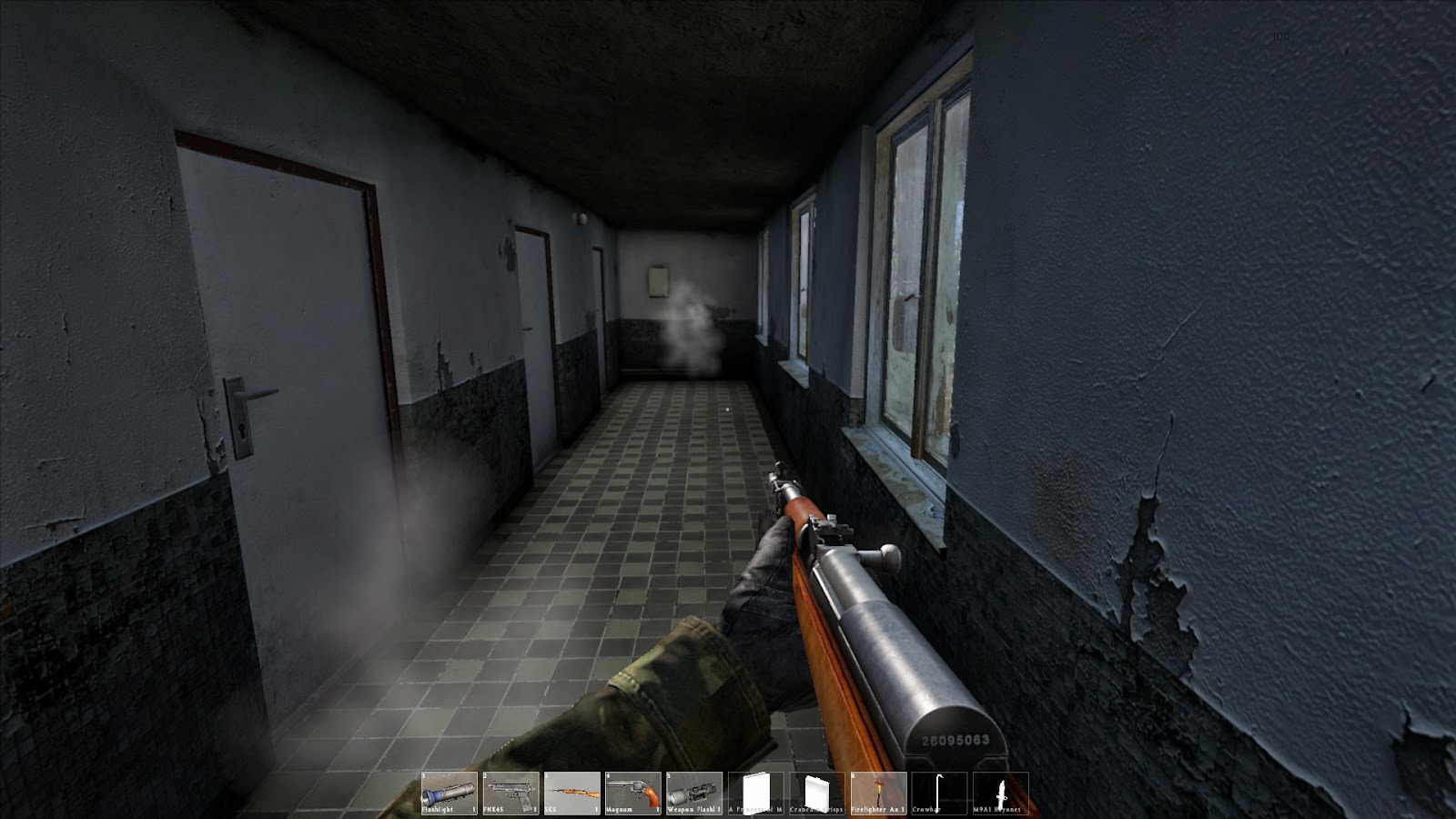 |
| It's been ages since I've had a direct encounter with another player in DayZ. I love outmaneuvering them. |
We've talked about the meaning of character death in a tabletop setting. It's time we look at the same kind of loss in video game. Let's be frank about this. There are very few games that approach death similarly or with anything approaching the same finality. Don't believe for a second though, that it is without reason.
Every new game is a product of those that came before, and their chief duty is to entertain. The widely held belief is that players will grow frustrated by frequent deaths, and being forced to restart the game in the event of their character's demise will seriously limit the game's audience. Is this still true of the market, or are things changing?
Looking at the big picture, I understand why limiting the impact of death is, or can be a good thing. It allows a player more freedom to take risks. It becomes a light consequence of failure, resetting you back to the last checkpoint, or sometimes reviving you on the spot to continue the fight (Bioshock, Borderlands). Death breaks up the flow of the game a bit, but often, these games move along rather speedily. Essentially, in order to keep a narrative pace, the possibility of failure is largely removed. This isn't wrong or right, just a fact of design; one of many choices made in the creation of a game.
Dark Souls, a game noted for frequent deaths and brutal difficulty employs this technique to great effect. Die in the game and you are brought back at the last bonfire you visited. In this way, the game deflects some of the rage that comes with frequent deaths. The only way to lose Dark Souls is to stop playing. It's the same for Call of Duty, Assassin's Creed, Halo, Splinter Cell, Tomb Raider, Uncharted, The Last of Us and many more.
Not all games go this route, however. More and more, games are defining death as a very serious consequence for players. With the recent surge in the popularity of survival games like DayZ, Don't Starve, and Rust, players seem to be enjoying the stakes that come with the possibility of losing everything they've put into a character. Called Permadeath, characters lost in these games don't come back. There is no loading the last save or respawning. No matter how much time a player has invested, once a character is gone, they are gone forever. How can this be a good thing?
 |
| This is my 19th character in Don't Starve. Just like the rest, she will eventually die and I'll be left with nothing. Again. |
Permadeath creates tension. This tension causes players to act more cautiously, feeling out situations before engaging and sometimes choosing to avoid conflict entirely. The risks that players feel so free to take in Call of Duty carry a lot more weight and (for me, at least) excitement. Creeping slowly through the grass to evade bandits or running from some enormous monster is very intense experience, and it's this that I believe keeps players coming back for more.
Death, in all games, is about creating atmosphere. Be it a tabletop game that can kill a player at a moment's notice or a narrative-centered video game that respawns you at your last checkpoint. A survival game should feel tense and desperate, just as an FPS should make a player feel like the best soldier on the field. If the player feels involved in the game world, the designers have done their jobs well.